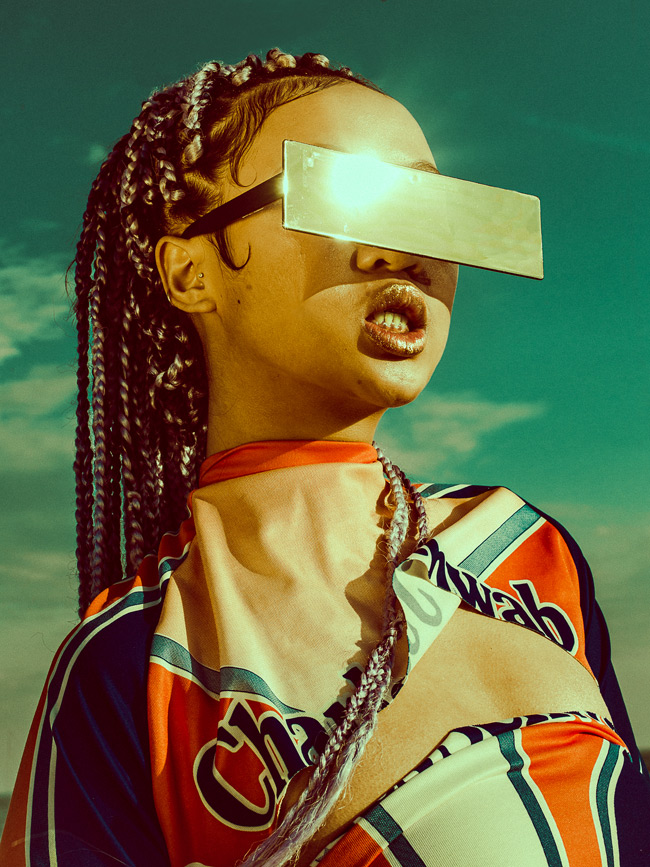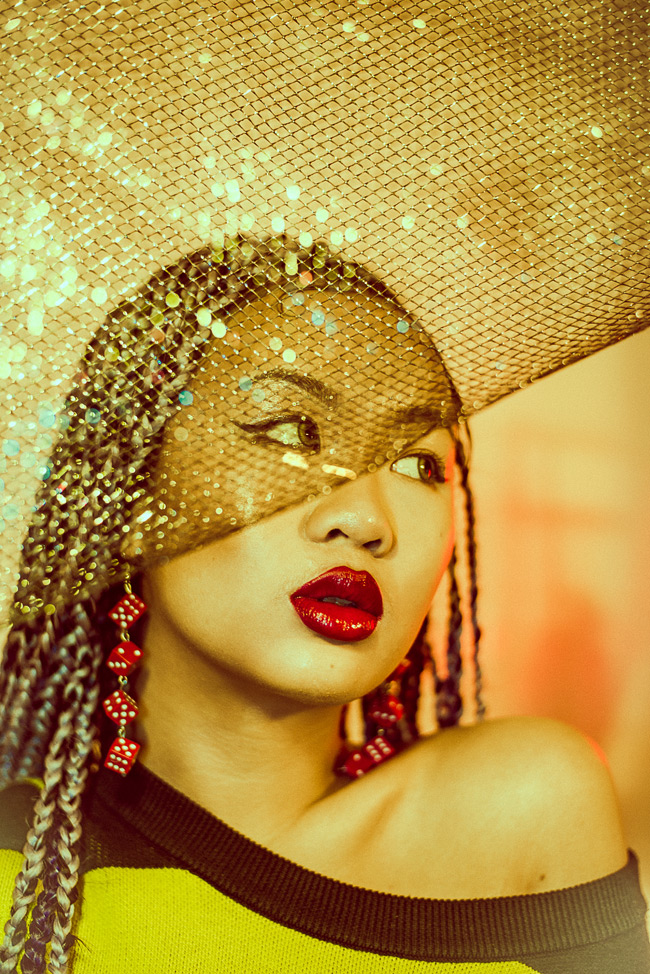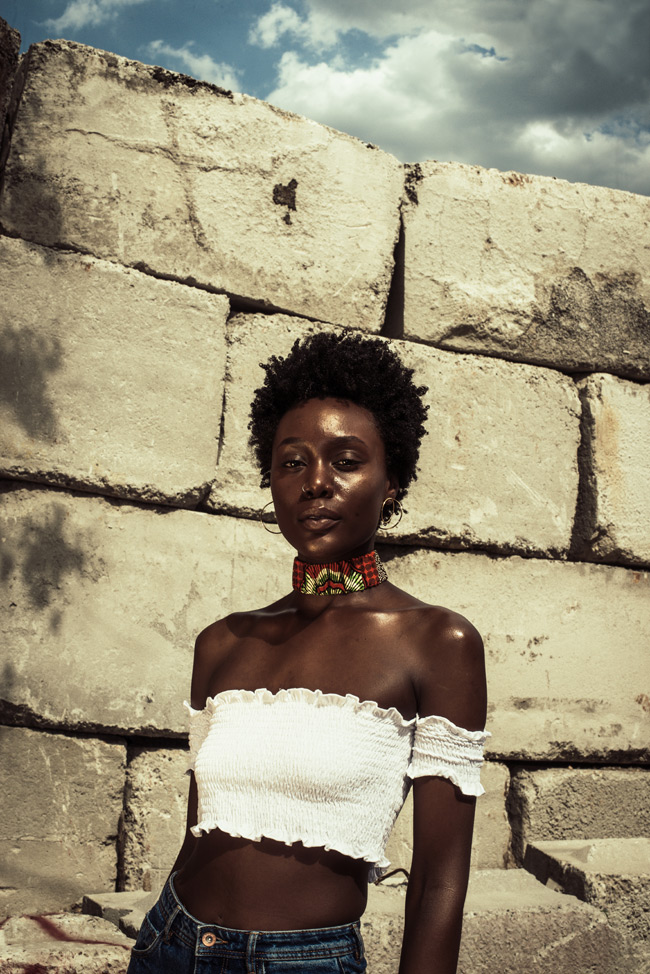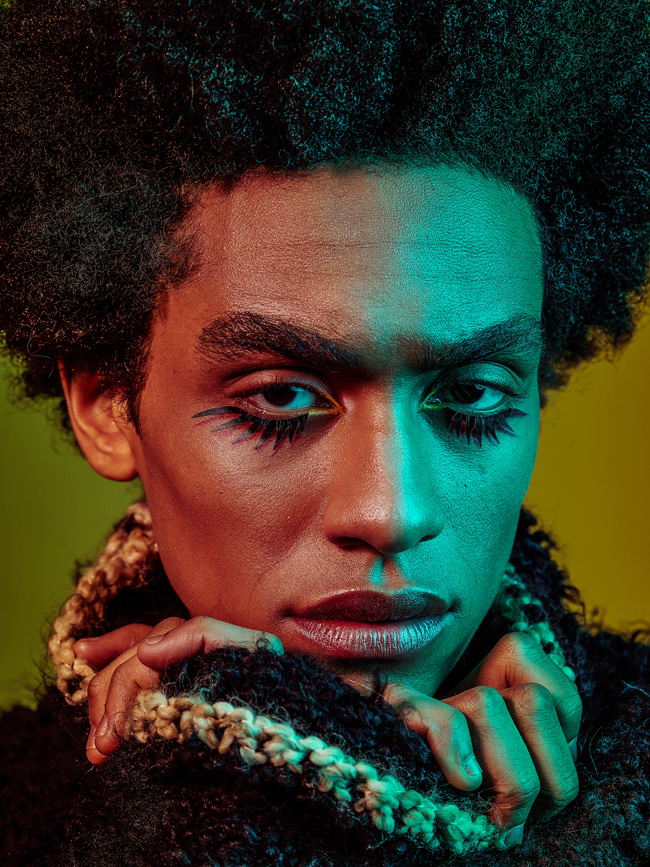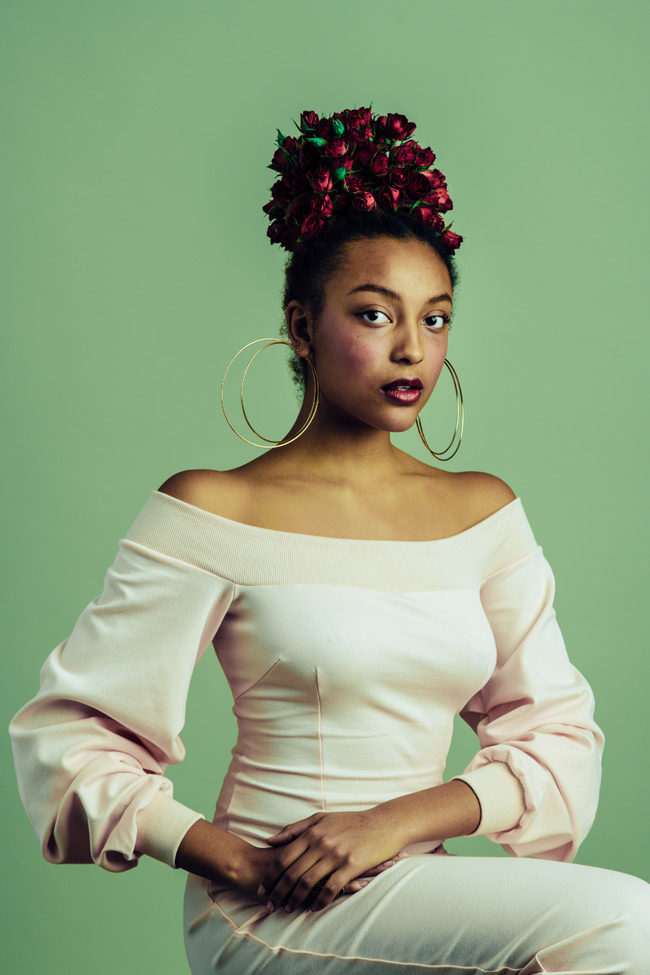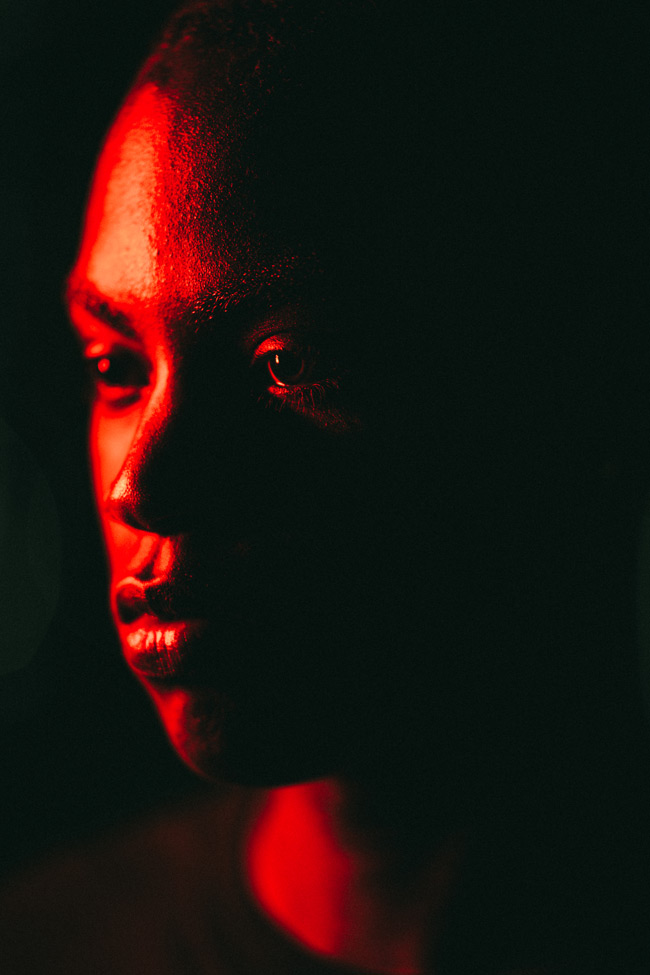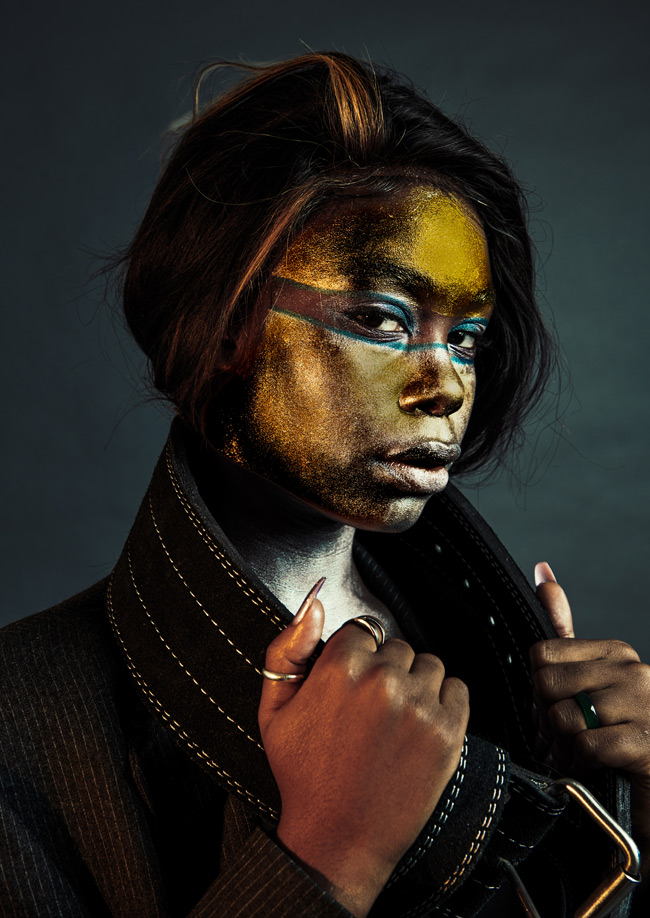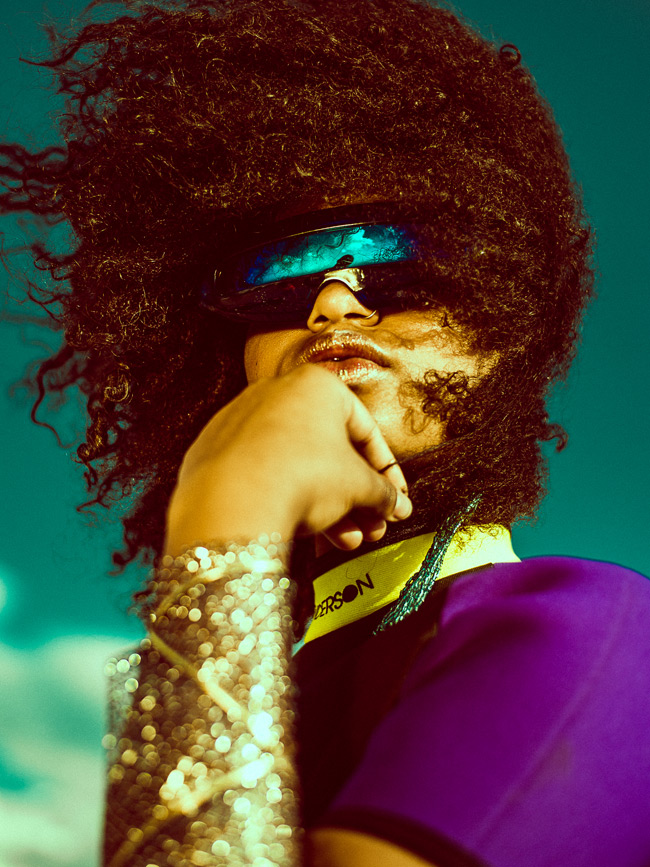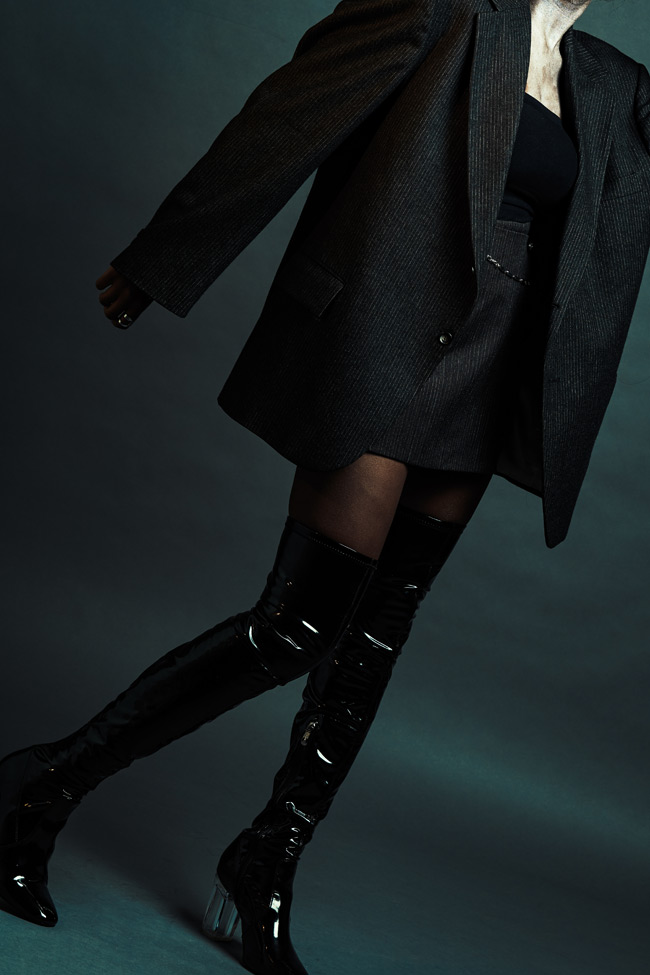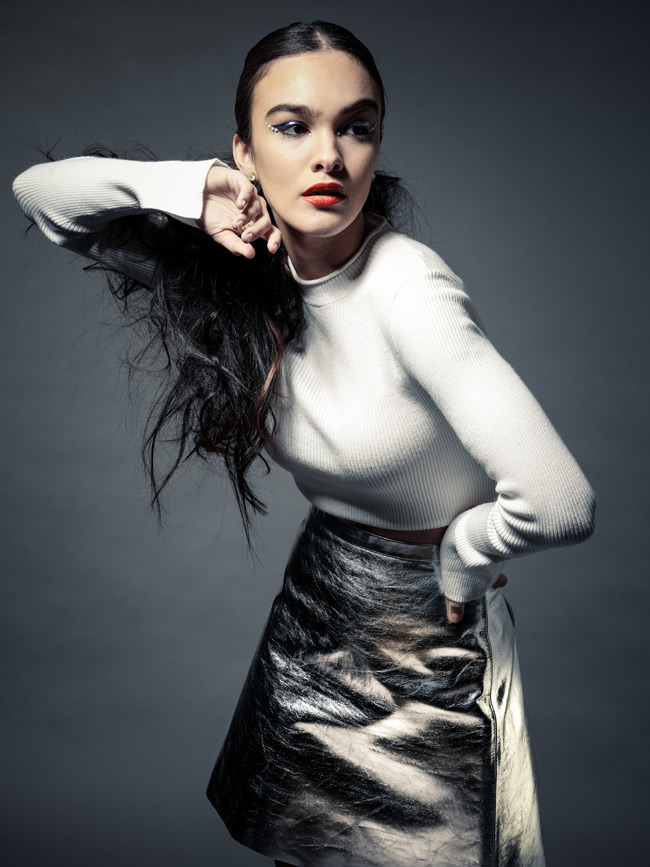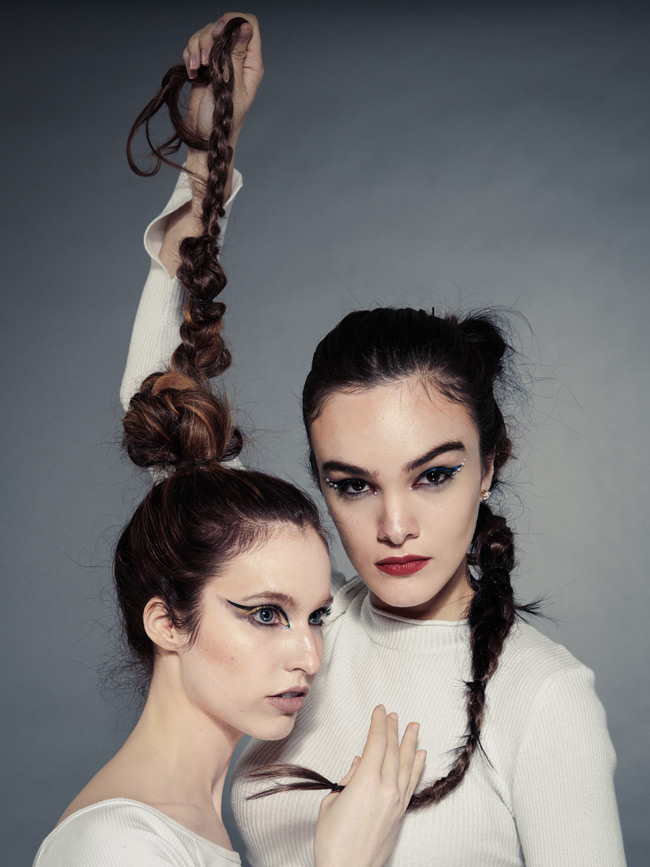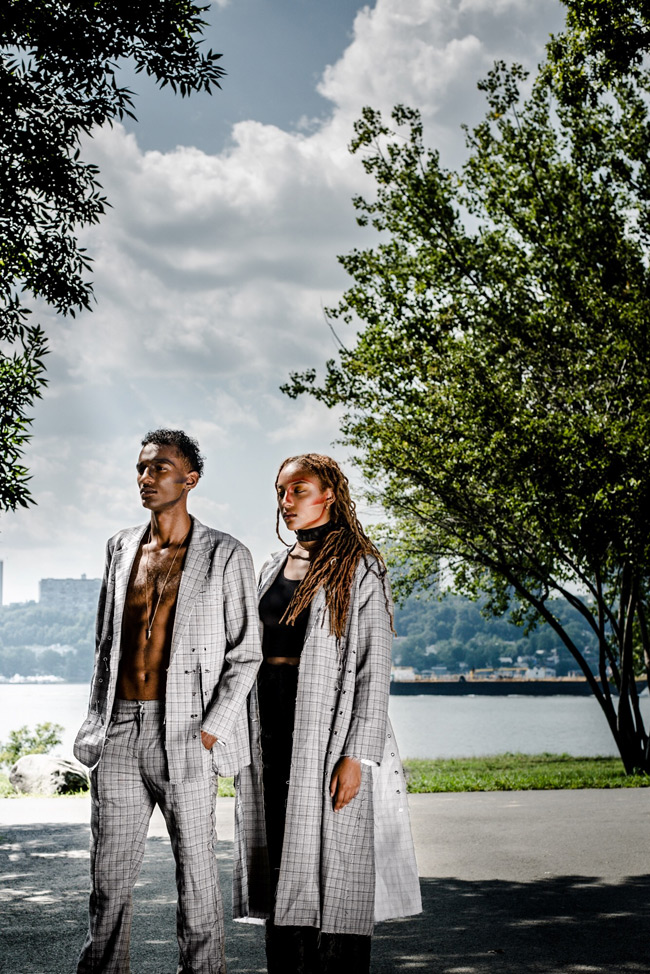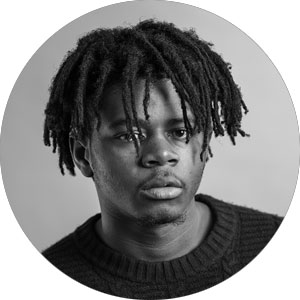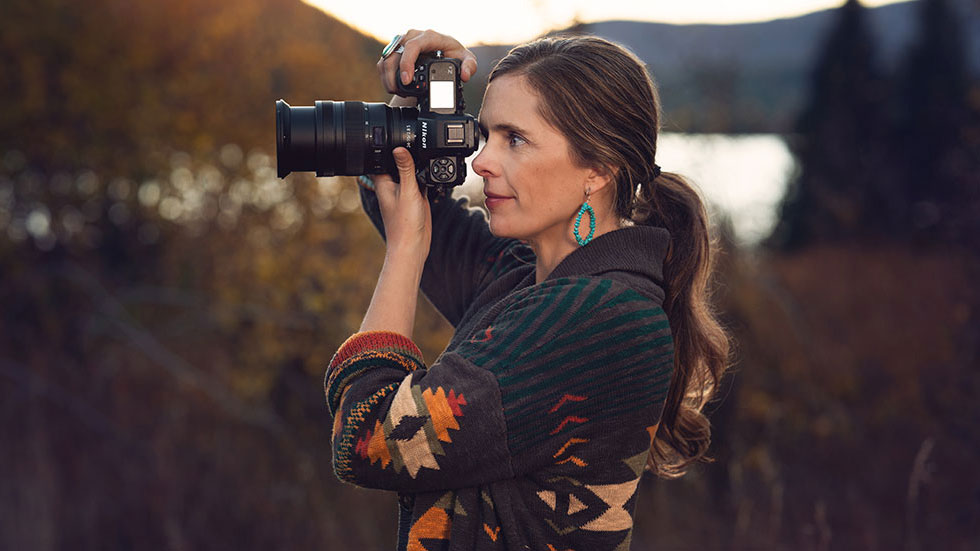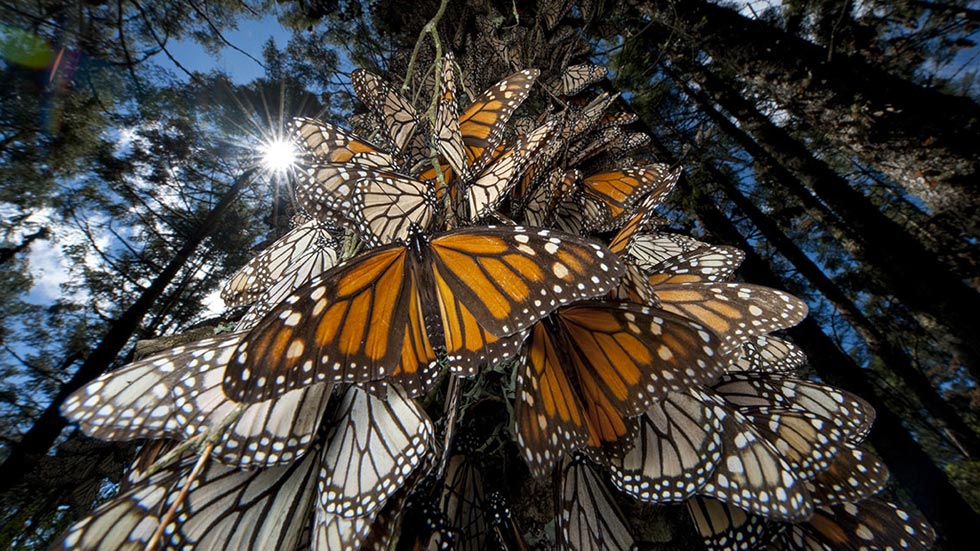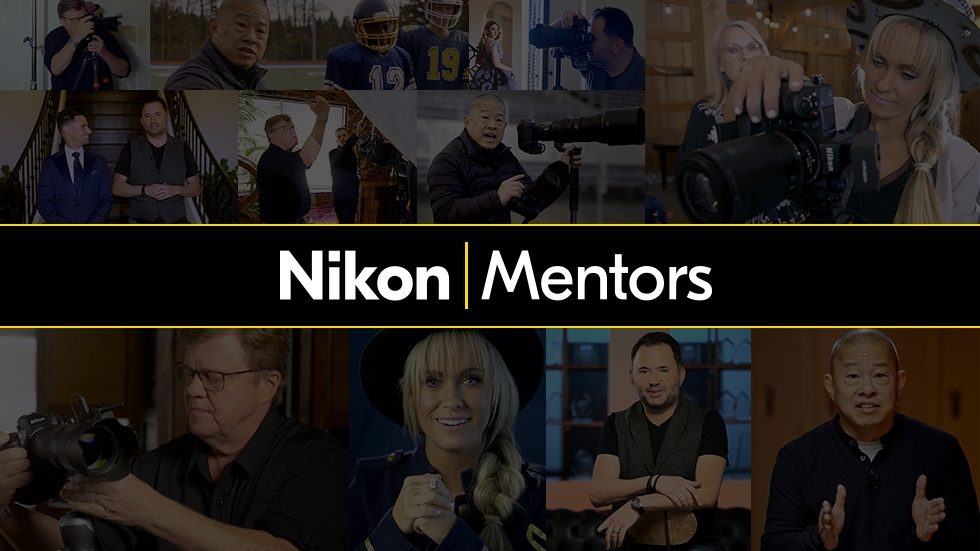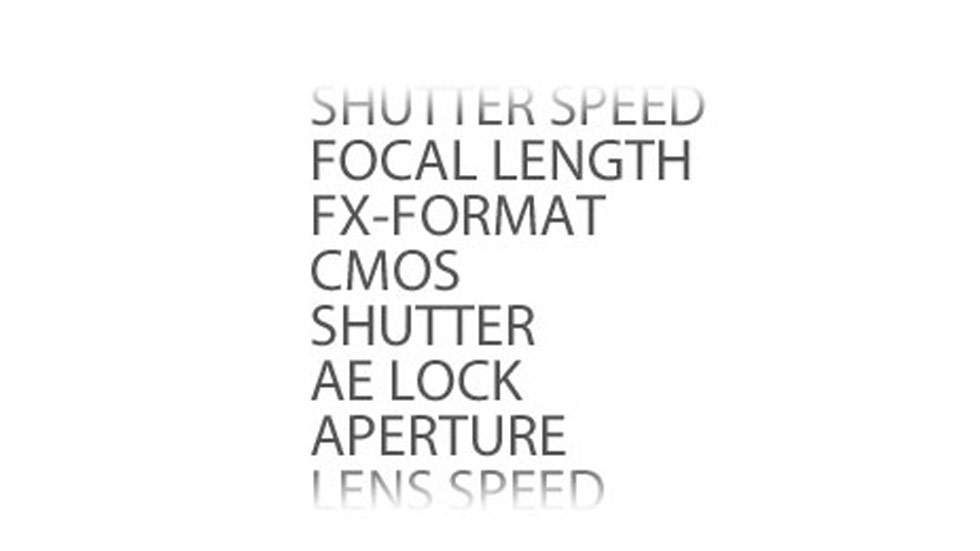Eddie Adams Workshop Winner Turns Dreams into Reality
For Malike Sidibe, life, and photography, are but a dream.
“If I were to describe my style of photography, I would say it’s surreal. I grew up in a country that is very different from the one that I live [in] now, so my vision and inspiration is very dreamlike,” says Malike, who was born in the Ivory Coast and is based in New York City.
In fact, the 21-year-old has used hard work, passion for Nikon cameras and his unique life experiences to achieve recognition in a short period of time.
“I feel like [having] lived in a country where we sometimes had to walk a couple of miles for water or go months without electricity—to moving to New York City where everything is so accessible—has taught me to use my experience as inspiration,” he says.
Malike—who speaks five languages, adds: “Growing up I came from a strict family and didn’t have freedom of expression. Therefore, my work is about freedom. It is based on a subculture of the youth. My goal has always been to create portraits [that reflect] freedom of expression: Personal expression.”
Always fashion conscious, Malike also recalls his turning point from aspiring fashion designer to respected photographer.
“Back in 2009, when my dad came back to Africa for the first time in 12 years, he was carrying a small ‘touristy’ camera and he showed me pictures he had taken while in China. I thought it was the coolest thing ever!”
He continues: "The first time I used it, I noticed that the way I was looking at things changed. I wish I had kept those photos, but at the time I did not realize that I was discovering my passion.”
Amanda - D800, AF-S NIKKOR 50mm f/1.4G, 1/640 sec at f/13, ISO 400, manual mode, Matrix metering. Coney Island on a cloudy day. When the sun came out, I used a mirror to reflect the lights onto her face.
Amanda - D800, AF-S NIKKOR 50mm f/1.4G, 1/160 sec, f/2.0, ISO 500, manual mode, Matrix metering. This shot of my friend Amanda was done in the bathroom. I lit this with a gel on my flash bounced off the walls. There was also a red neon light illuminating her from the right.
And that passion led him to save up to buy his first camera: A Nikon D3200 DSLR.
“Once I bought my D3200 I started going out to find interesting locations. From there it became a hobby, and from a hobby to work. It still feels like a hobby to me. I don’t think I’ll ever look at photography as work,” he says.
Today, his Nikon collection has grown and is essential to his portfolio.
“With NIKKOR lenses, the 50mm f/1.4 and the 105mm f/1.4 are my favorites. When it comes to portraits, I love playing around with the depth of field, and the focal point,” he says. “I think anyone who’s had the chance to shoot with the 105mm would agree that the it is one of the best lenses to use for portraits.”
Ultimately Malike says he wants to create a collection of images that will inspire kids growing up in Africa, or other parts of the world, to go out, be creative and express themselves.
Humble beginnings
Malike’s photography is quite dreamlike, but his beginnings in West Africa were far from it.
“I was born in the Ivory Coast and grew up in Guinea. I’ve lived through multiple brutal war periods. One of my most vivid memories was migrating on foot from city to city in the Ivory Coast with my uncle to get to a nearby city to take the bus to Guinea,” he describes.
“There were times that we couldn’t go out at night or stay out whenever we wanted and not get in trouble [in Africa]. So going through that and now living in New York City and seeing kids that have the freedom to do whatever they want inspires me to capture their personalities.”
He concludes: “I feel like the older I get the memories from my experiences start to almost feel like it was a dream, and my memories and experiences play a big role in my photography.”
Shanice - D800, AF-S NIKKOR 50mm f/1.4G, 1/250 sec, f/16, ISO 160, manual mode, Spot metering mode. This shot was shot in The Bronx on a very sunny day. I had my assistant hold up a gold reflector to get the glow in her skin.
Ocean - D850, AF-S NIKKOR 70-200mm f/2.8E FL ED VR, 1/160 sec, f/7.1, ISO 125, manual mode, Matrix metering. This image of Ocean was shot in the studio with the goal of pushing the boundaries of gender.
A style all his own
As a result of his unique background, Malike has developed an equally unique photographic style.
“With my personal work, the image is often already created in my brain. I just mimic that same picture with my camera,” he says. “Eighty percent of my work is all done on set with my camera,” he notes, adding that all the colors in his photos are lit on set as well.
He explains: “The first time I ever shot with the 50mm it was literally love at first sight. I love prime lenses because I prefer cropping everything when I am on set. I also really like working with my 70-200mm and 24-70mm. I can’t go to a shoot without my 24-70mm and my 50mm.”
He adds: “In terms of Nikon bodies, the D850 is my favorite. Ever since I started using the D850, I can literally see the changes in my work. I don’t have to worry about my images being sharp because the camera does most of the work for me. The colors and the focus on the D850 are amazing.”
“I have Nikon to thank for having lenses and cameras that are simple yet very sophisticated for me to bring my imagination to life,” he concludes.
Jada - D850, AF-S NIKKOR 105mm f/1.4E ED, 1/160 sec, f/8, ISO 100, manual mode, Matrix metering. This is a shot of my friend Jada, and she is one of the strongest people I know. She’s never afraid of speaking up for herself, and I’ve always admired her for that. My goal for this shot was to portray that personality.
I want you to keep in mind that photography is a language, just like any other language. The more you practice the language the more you learn to speak in that language.
Ziggy - D850, AF-S NIKKOR 105mm f/1.4E ED, 1/60 sec, f/1.4, ISO 1000, manual mode, Matrix metering. I lit this shot with a Ice light with red gels on it.
Halle - D850, AF-S NIKKOR 24-70mm f/2.8E ED VR, 1/160 sec, f/7.1, ISO 100, manual mode, Matrix metering. This image was lit this using just one large softbox.
Bree - D800, AF-S NIKKOR 50mm f/1.4G, 1/2500 sec, f/2.2, ISO 200, manual mode, Matrix metering. Coney Island on a cloudy day. When the sun came out, I used a mirror to reflect the lights on her face.
Living the dream
Receiving top honors at the Eddie Adams Workshop—which Nikon is the major sponsor—was another dream come true for Malike.
“When I first got accepted to the workshop, I was nervous because my work is mostly fashion inspired. The Eddie Adams Workshop is known for photojournalism and documentaries so I didn’t know what I had to bring to the table,” he says.
However, his nerves were quickly alleviated once he met many of the photographers and editors there. As a result—and based on his work at the workshop—a panel of judges selected him as the Eddie Adams Workshop Nikon Grand Prize Award winner.
Along with that title, Malike received a kit of top-of-the-line equipment courtesy of Nikon, including the new Nikon D850 DSLR, SB-5000 Speedlight, as well as the AF-S NIKKOR 20mm f/1.8G ED, the AF-S NIKKOR 24-70mm f/2.8E ED VR, the AF-S NIKKOR 70-200mm f/2.8E FL ED VR and the AF-S NIKKOR 105mm f/1.4E ED lenses.
For Malike, it is the improvement he showed and willingness to learn that made the difference.
“I think it came down to how you take in the feedback they give you and how you utilize that feedback to better your pictures. Being able to take a great photo is one thing, but your personality, the connection between you and your subjects and the steps you take to get those photos is another,” he says.
“The Eddie Adams Workshop has opened so many doors for me,” he adds. “Winning the Eddie Adams Workshop Nikon Award has showed me that anything is possible with hard work and dedication.”
Getting started
The Eddie Adams Workshop is not the first time Malike has had a fortuitous experience with his photography.
In fact, it was his involvement with the NYC Salt program (the 501c3 nonprofit digital photography and college access program that serves low income, immigrant youth in NYC) that truly jump-started his career.
NYC Salt became his second home. “I showed up there every day. Salt helped me find my voice in photography and helped me learn to express myself with my camera,” he describes.
Coincidentally, it was through the Salt program that he heard about the Eddie Adams Workshop, and in a moment of serendipity, he has now become a photography teacher through NYC Salt, teaching high school students about different techniques using Nikon cameras.
Halle - D850, AF-S NIKKOR 105mm f/1.4E ED, 1/125 sec, f/7.1, ISO 100, manual mode, Matrix metering. This image was lit this with just one large softbox.
Kelly - D850, AF-S NIKKOR 70-200mm f/2.8E FL ED VR, /160 sec, f/11, ISO 125, manual mode, Matrix metering. This shot was lit with a big Octabank as my key light.
Jenisa & Kelly - D850, AF-S NIKKOR 24-70mm f/2.8E ED VR,1/160 sec,t f/13, ISO 160, manual mode, Matrix metering. This was lit with a big Octabank as my key light.
Dreaming big
Not surprisingly, Malike has big dreams for his future and his future impact on the world.
“I’ve always had the dream of collaborating with name brands like Louis Vuitton, Gucci, and Balenciaga,” he says. “I’ve always been obsessed with the way they portray their work in ads and how they incorporate their clothing styles to express one way of life.”
In a nod to his background, Malike hints that he intends to use his future success to give back in other ways as well.
“I am amazed by the fact that those companies work with organizations like UNICEF to help and inspire kids from around the world. I see myself working with name brands that are aware of current problems in the world, and brands that are using inspiration to make a difference and to inspire the youth to keep the culture moving forward,” he describes.
Currently, he is working on a portrait project called “Mousollou” that will showcase the fashion sense of African women, as well as the African housewife.
Once completed, he hopes to do a solo gallery show featuring the work.
He concludes: “To all the young people who want to pursue a career in photography, I want you to keep in mind that photography is a language, just like any other language. The more you practice the language the more you learn to speak in that language. At first it will feel like no one can understand what you are trying to say, but with a lot of practice, failure and more practice, eventually you will start to speak it fluently and you will be able to express yourself through it.”
Friends - D800, AF-S NIKKOR 50mm f/1.4G, 1/2000 sec, f/4.5, ISO 640, manual mode, Matrix metering. This was shot with available light bounced onto a reflector.

